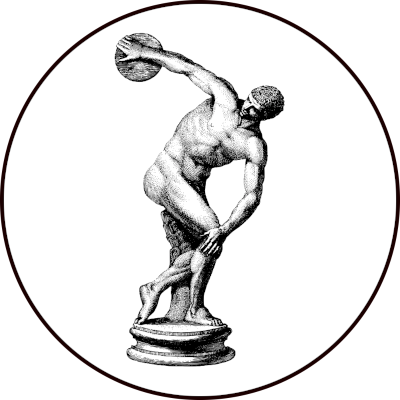More health than fitness but I couldn’t find a could place to ask. Basically, I’m not sure where to start with all of this. All of these are from my physicians due to various health conditions I have. I know I need to ramp up to them. All of these are per day.
Also, I’m really looking for ideas, not medical advice, but just fyi I will definitely be presenting a plan to my doc to make sure it works in the context of my medical stuff.
- 150g protein (currently I don’t think I even eat 30g)
- 10g salt (no idea how much I eat but I take 1.5g salt tablets per day and my family historically doesn’t eat much salt)
- 4-5L fluids (I might drink about 1L…maybe. I can use high water content foods to achieve this goal)
- Increase brushing to 2x with electric toothbrush (currently use a manual one)
- Floss 1-2x (i suck at this one)
- Waterpik (i never do this)
- Low intensity exercise 2-3 min (not a typo…will increase later) (in a former life I did a lot of high intensity exercises so this is very boring and feels like a waste of time)
- Lose 30lbs (currently holding steady) (this one is obviously not per day lol) (this one is also less important at this time)
Those are the main ones. Where would you start? And how the hell do you fit an entire 150g of protein in in one day??
My physicians haven’t been super helpful with the practical side of things. Also I can’t afford a dietician so that’s part of what’s made this so difficult.
More context that might be of help:
- I generally eat 3 meals per day, sometimes snacks but not usually
- I drink mainly electrolyte beverages and water
- My mental health has sucked for awhile so everything feels impossible
- My proteins are usually chicken, beef, pork, and sometimes nuts/beans. I also like dairy-based protein drinks. Although I like seafood, my family really doesn’t so I have to limit that.
- No food allergies or religious requirements
- My range of motion is not limited. I basically just need to keep my heart rate down.
- Sitting up for long periods is hard, so I’ve been thinking about starting there so that I can have more fluids more easily
- I am only allowed to do recumbent exercises or things laying on my back. I can also sit on the edge of a tub or pool. But walking/running/standing exercises are out for now
- Reminder apps and charts are not really helpful for me, but I would be willing to try more of them
- I’m an American and we do not weigh our food lol. Even if I started that I have no idea how I would calculate this stuff. 😬 Tips/resources are welcome, though
Thanks for any ideas!
Are all those things listed prescribed by your doctor?
I’m not sure how it’s even possible to eat less than 30g protein each day, eating bread alone would push you over that number.
What’s your target daily caloric intake? The diet you need for 150g protein would look different if you eat 2000kcal or 3000kcal.
Egg, milk and meat are all great sources for protein.
3 eggs (180g ~22g protein) for breakfast, some peanut butter (100g ~28g protein) for lunch and a piece of chicken breast (230g ~53g protein) would put you at 103g of proteins. Just add whatever extra you want with those three meals and you should be past your 150g goal. As long as you eat clean and avoid junk food, you shouldn’t have much trouble reaching your goal.
In Norway there’s currently a trend of carrying around a 2L water bottle with time of day markings for how much water should be in the bottle. I assume you’ll find them in USA too, maybe that works out for you.
I’m an American and we do not weigh our food lol. Even if I started that I have no idea how I would calculate this stuff.
Well that got to change if you want to control your sodium intake. You can’t regulate something you have no measurement of.
Energize is a FOSS app on F-Droid that you can use to track you protein intake, but I don’t think it tracks your micronutrients. My Fitness Pal does, but it’s subscription based. No idea what apps are available on iPhone, though I believe My Fitness Pal is there.
I probably way underestimated my current protein intake tbh. I don’t really have much of a conceptual understanding of how much any of this stuff is
I’m not sure what my intake should be. I looked at one of those calculators and it says maintenance is around 1900. So I should probably start with that until I get used to measuring stuff and then aim for dropping some weight.
Thanks for the app rec (and your help!), I will check it out.
What parts the list is prescribed by your doctor?
All of it (multiple doctors contributed). The losing weight is technically my number but all of them want me to lose weight, I just picked a number to get me to a “healthy” BMI. I know BMI isn’t the greatest measurement but that’s what I’ve got lol
Protein.
A food scale of some kind is highly recommended.
~100g protein can be achieved via :
Chicken, uncooked, 16oz or 448g
Chicken, cooked, 10oz or 280gIt’s a relatively small amount of chicken.
I included both weights so you can weigh it cooked or uncooked, they are estimates based on my experience cooking and weighing chicken.
Add in a 50g protein shake for breakfast and protein is done for the day, then just eat beans, fruits, veggies, and you can use whatever else to meet your remaining TDEE.
For shakes, most options are fine. In general, I try to get the ones with the least sugar. I like Huel and Optimum Nutrition, though recently I’ve been trying other brands.
For a free calorie app that requires some setup, you can get Waistline, for a subscription calorie app that will “just work” use MyFitnessPal.
Tracking calories is critically important. Once you have been weighing your food for a bit, you’ll be able to glance at something and estimate the calories fairly accurately. A superpower anyone can develop :-)
This it is really easy to hit protein especially when you make your meals “real meals” and not snacks. You can make said snacks protein filled by using anabolic recipes and the such but can take getting used to my family often does like how they taste but I think they are great.
The tracking app I use is mynetdiary it is from what I have found a free fitness pall. Best of luckThis is great. Thank you!
Start by writing down everything you eat for a few days. That way you can figure out your baseline protein, salt, and calorie intake. I did this with pen and paper btw.
For losing weight CICO is the way. I’ve had success following the “No-S diet” because personally I don’t enjoy using calorie tracker apps, ymmv given your medical needs. I aim for 30g protein per meal (via eggs, dairy, lentils, tofu) - I have a few meals I like to bulk-cook that meet my macros. For salt, are you allowed to eat dill pickles? Iirc they have a decent amount of salt for low calories.
I have no idea how I missed this, but I am glad that I am seeing it now. I think this is going to be very helpful.
And yes, I can eat pickles! They are delicious 😋
deleted by creator
A little late to respond to this, but a few things:
Track your protein intake. Likely you’re getting in more than 30 unless you’re just actively avoiding protein. Once you know how much you’re taking in, shoot to increase your intake by a bit each week. Protein powder can help a lot with this, but if your goal is to lose fat then you’re better off increasing protein from whole food sources at first (these will keep you fuller for longer).
As I mentioned above, increasing your protein intake will help you lose weight because you’ll feel fuller and more satisfied after meals. You’ll need to take in less calories than you burn, so you’ll need to find a way to this that you can stick with. The #1 determiner of success is adherence - find something that you can stick with long term. I like to track my calories and protein, but other people like to eat low carb, low fat, mindfully eat, intermittently fast, etc. Sometimes it can take time to figure out what works for you, and it may take some experiementation to determine the approach that fits you best.
As for 10g of salt, I’m not sure why this is a goal of yours, but I’d 100% discuss this with your doctor before doing this. I’m assuming this might be because of some sort of underlying condition, but for most people that is a ton of salt to be taking in each day.
If you want to start weighing your food, buy yourself a kitchen scale and weigh it in a bowl. I weigh it cooked (there is a difference in weight between raw vs cooked). There are apps that can help out with figuring out how many grams of protein are in X amount of a food, but you can also just Google it. Alternatively, a palm sized portion of a lean cooked protein source (chicken breast, lean beef, etc) is usually about 25g of protein, so that might be an easier thing for you to do.
Caloric intake will be the #1 determiner of fat loss. Activity in the form of exercise will help, but not as much as cutting back on calories - focus on food intake first. Exercise is great for you, though - I would look at exercise as a way to improve your health vs as a way to burn more calories.
Thank you. I really appreciate your help




